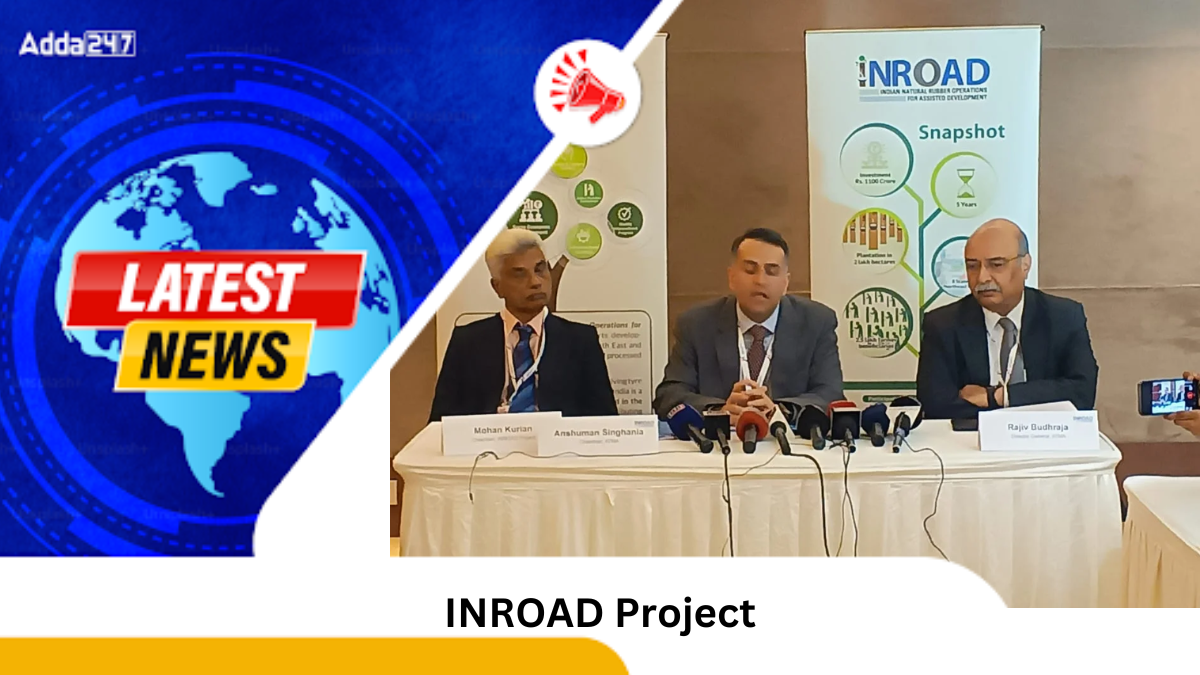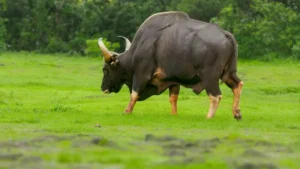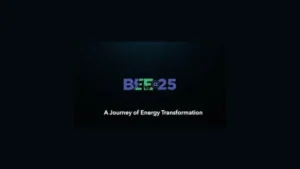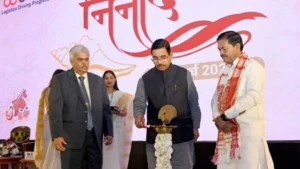The INROAD (Indian Natural Rubber Operations for Assisted Development) project, launched with a financial backing of ₹100 crore, aims to enhance the quality of natural rubber produced in India’s North-East. This initiative focuses on skill development for rubber growers and the establishment of model infrastructure, with support from key players in the tyre industry, demonstrating a unique collaboration between agriculture and manufacturing.
Project Overview
INROAD is a pioneering initiative in the global tyre industry, focusing on improving the quality of natural rubber through direct involvement from tyre manufacturers. The project is financially supported by four major companies – Apollo, Ceat, JK, and MRF. The Rubber Board of India oversees its implementation.
Achievements to Date
In its first four years, the project has successfully established 1,25,272 hectares of new natural rubber plantations. These plantations span across 94 districts in the North East and parts of West Bengal, marking a significant step towards enhancing local rubber production.
Skill Development Initiatives
A core component of the INROAD project is skill development. The initiative provides training to rubber growers through digital platforms, aiming to equip farmers with the necessary knowledge and skills for effective rubber tapping and processing. The focus is on areas critical for improving the quality of rubber.
Infrastructure Development
Infrastructure development is equally important in the INROAD project. Model Smoke Houses and Processing and Grading Centres are being established to support rubber growers. These facilities are designed specifically for the region’s needs, with smokehouses playing a crucial role in producing high-quality rubber sheets by drying and curing latex.
Economic Empowerment of Women
The project also emphasizes the economic empowerment of women in rubber cultivation. A model smokehouse has been inaugurated for the Bhaishkhuli Pragatishil Mohila Samittee, a cooperative of 65 female rubber growers in Goalpara, Assam. This facility will not only enhance the quality of rubber produced but also serve as a training and demonstration centre.
Future Directions
The INROAD project aims to continue its efforts in capacity building and infrastructure development, focusing on enhancing the quality of natural rubber and empowering local farmers. By encouraging collaboration between the tyre industry and rubber growers, the project seeks to create a sustainable model for rubber cultivation in India.
Summary of the news
| Why in News | Key Points |
|---|---|
| INROAD (Indian Natural Rubber Operations for Assisted Development) project secured ₹100 crore for improving natural rubber quality in North-East India. | Project Focus: Enhances quality of natural rubber in North-East India. Funding: ₹100 crore investment. Tyre Manufacturers: Apollo, Ceat, JK, MRF involved. |
| The project aims to establish model infrastructure and provide skill development for rubber farmers. | Infrastructure: Smokehouses and processing centres established for rubber quality improvement. Skill Development: Digital platforms for training rubber growers. |
| Over 1,25,000 hectares of new rubber plantations set up across 94 districts in North-East India and parts of West Bengal. | Area Covered: 1,25,272 hectares of rubber plantations. Regions: North-East India and parts of West Bengal. |
| A model smokehouse was inaugurated for a cooperative of 65 female rubber growers in Goalpara, Assam, as part of empowering women in rubber cultivation. | Empowerment: Focus on women’s economic empowerment through rubber cultivation. Women’s Cooperative: Bhaishkhuli Pragatishil Mohila Samittee, Assam. |
| The Rubber Board of India oversees the INROAD project. | Oversight: Rubber Board of India. |
| The project also helps in improving rubber tapping and processing methods for better quality. | Focus Areas: Rubber tapping and processing quality improvement. |



 Debrigarh Sanctuary To Showcases Rich Wi...
Debrigarh Sanctuary To Showcases Rich Wi...
 BEE Turns 25! Power Minister Unveils BEE...
BEE Turns 25! Power Minister Unveils BEE...
 Central Warehousing Corporation Celebrat...
Central Warehousing Corporation Celebrat...








